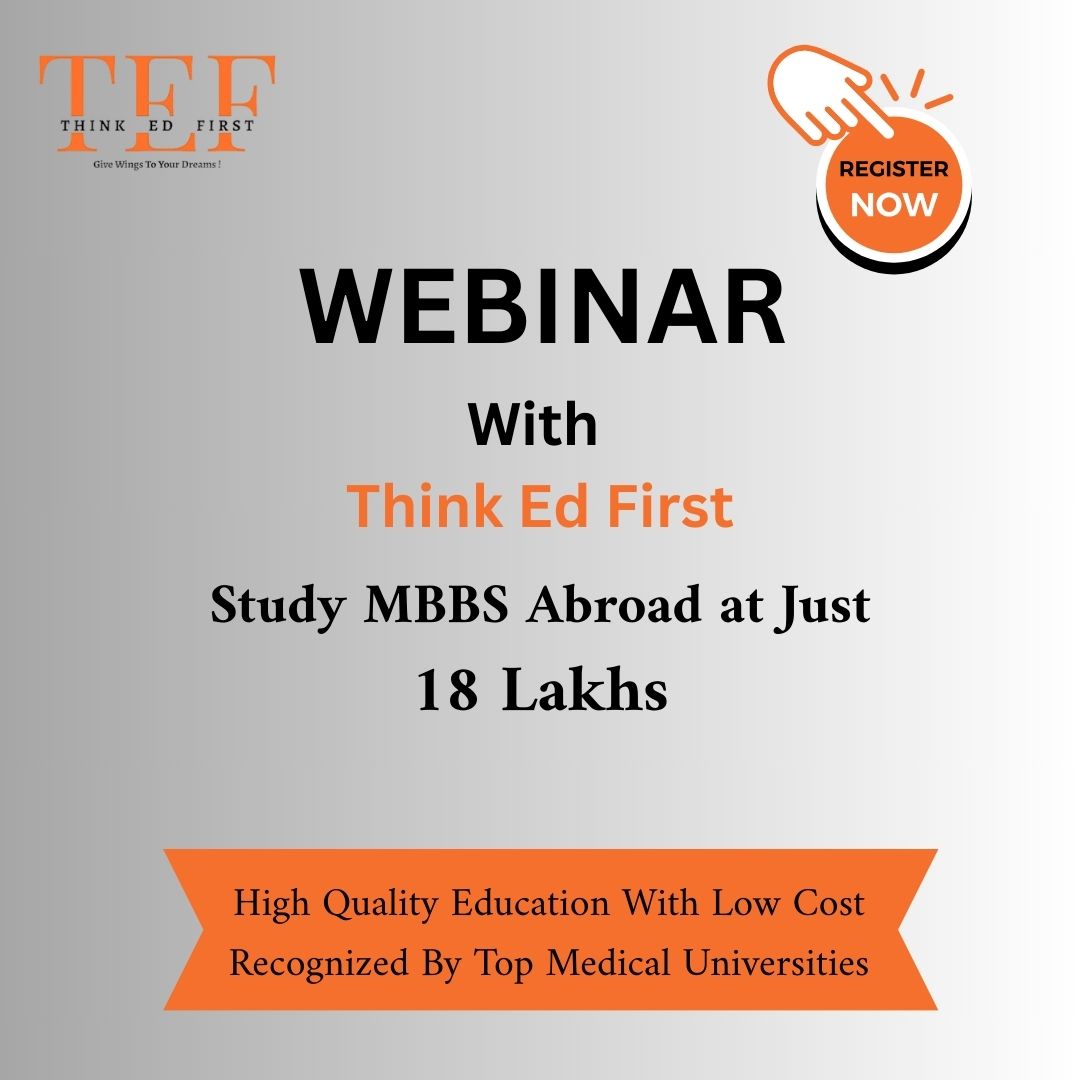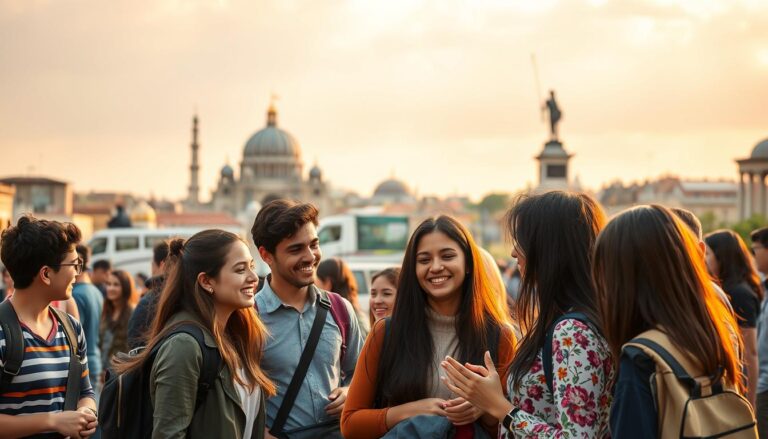Have you ever wondered how international learners manage their medical needs while studying abroad? Navigating a new country’s system can be challenging, but it doesn’t have to be overwhelming. We’re here to guide you through the process.
Russia offers a unique blend of affordability and advanced infrastructure. Many state medical universities provide globally recognized education, making it a popular choice. The multicultural environment also helps learners adapt more easily.
With low living expenses and affordable tuition, studying in Russia is an attractive option. The well-equipped facilities in medical university Russia ensure learners receive top-notch training. Additionally, NMC-approved hospitals add to the credibility of the education system.
Understanding the healthcare system is crucial. We’ll explore the key challenges and benefits, helping you make informed decisions. Let’s dive into the details and simplify your journey.
Introduction
Embarking on a journey to study medicine abroad is both exciting and challenging. This guide aims to simplify your experience by providing essential insights into the process. We’ll explore why many choose Russia for their medical education and how to navigate its system effectively.
Russia stands out as a top destination for aspiring doctors. Institutions like Kazan State Medical University offer globally recognized programs. The affordability and advanced infrastructure make it an attractive choice for learners worldwide.
The healthcare system in Russia is designed to support international learners. With a blend of public and private options, accessing medical services is straightforward. This ensures you can focus on your studies without unnecessary stress.
In this article, we’ll cover everything from admission processes to campus facilities. You’ll also learn about the cultural diversity that enriches your experience. Here’s a quick overview of what to expect:
| Topic | Details |
|---|---|
| Admission Process | Step-by-step guide to applying for medical programs. |
| University Facilities | Overview of advanced infrastructure and resources. |
| Cultural Diversity | How multicultural environments enhance learning. |
By the end of this guide, you’ll have a clear understanding of what it takes to succeed. Let’s dive in and make your journey smoother and more enjoyable.
Overview of MBBS Education in Russia and International Student Experience
Russia’s medical education system is renowned for its affordability and international recognition. Over 90 medical universities in the country offer programs in English, making it accessible for learners worldwide. The curriculum is designed to meet global standards, ensuring graduates are well-prepared for their careers.
The MBBS program spans six years, including one year of internship. This structure provides a balance of theoretical knowledge and practical training. Students gain hands-on experience through clinical exposure at state medical institutions, enhancing their skills and confidence.
Top-rated institutions like Kazan State Medical University and I.M. Sechenov First Moscow State Medical University are known for their advanced infrastructure. These universities offer modern facilities, including well-equipped labs and libraries, to support learning. The NMC-approved curriculum ensures compliance with international standards.
International students enjoy a vibrant campus life. Universities provide comfortable accommodations, cultural events, and support services to help learners adapt. The multicultural environment fosters friendships and enriches the overall experience. Studying MBBS in Russia offers a unique opportunity to grow academically and personally.
With affordable tuition fees and low living costs, Russia is an attractive destination for aspiring doctors. The blend of quality education and diverse experiences makes it a top choice for many. Whether you’re pursuing a career in medicine or exploring new cultures, Russia offers a fulfilling journey.
Navigating the Russian Healthcare System as an International Student
Navigating medical services in a new country requires clarity and preparation. The Russian system offers a mix of public and private options, ensuring learners can access quality care. Understanding the differences between these services is key to making informed decisions.
Public vs. Private Healthcare Options
Public healthcare in Russia is accessible to all residents, including international learners. It’s funded by the government and often free or low-cost. However, waiting times can be longer, and services may vary by region.
Private healthcare, on the other hand, offers faster access and more personalized care. While it comes at a higher cost, many learners find it worth the investment. Here’s a quick comparison:
| Aspect | Public Healthcare | Private Healthcare |
|---|---|---|
| Cost | Free or low-cost | Higher fees |
| Waiting Time | Longer | Shorter |
| Quality | Varies by region | Consistently high |
Accessing Emergency Medical Care
In case of emergencies, dial 112 for immediate assistance. Public hospitals handle most urgent cases, but private clinics also offer emergency services. It’s wise to keep your insurance details handy for smoother processing.
Many state universities provide on-campus health centers for learners. These facilities are convenient and often free for enrolled students. They’re a great first stop for minor illnesses or consultations.
For Indian students, understanding the system can ease the transition. Universities in Russia often have support staff to guide learners through the process. Whether you choose public or private care, knowing your options ensures you’re always prepared.
Healthcare for MBBS Students in Russia
Exploring medical education abroad opens doors to advanced learning opportunities. For those pursuing a medical degree, Russia offers a blend of affordability and quality. NMC-approved facilities ensure that learners receive globally recognized training, preparing them for successful careers.
Benefits of NMC-Approved Medical Facilities
Studying at NMC-approved institutions provides several advantages. These facilities adhere to international standards, ensuring that the curriculum meets global requirements. Graduates are well-prepared to pass licensing exams and practice medicine worldwide.
Additionally, these institutions offer advanced infrastructure, including modern labs and libraries. This enhances the learning experience, making it easier to grasp complex medical concepts. For Indian learners, this is a significant advantage, as it aligns with their career goals.
Quality of Clinical Training Environments
Practical training is a cornerstone of effective medical education. Russian universities provide hands-on experience through clinical rotations and internships. This exposure helps learners develop essential skills and confidence in real-world settings.
For example, institutions like Kazan State Medical University offer state-of-the-art training environments. These facilities are equipped with the latest technology, ensuring that learners stay updated with modern medical practices. This practical approach bridges the gap between theoretical knowledge and real-world application.
Affordable tuition fees make this high-quality education accessible. Many learners find that the cost of studying in Russia is significantly lower compared to other countries. This affordability, combined with excellent training, makes it an attractive option for aspiring doctors.
For those considering affordable MBBS programs, Russia stands out as a top choice. The combination of quality education, practical training, and low costs ensures a fulfilling academic journey.
Admission Process and Eligibility for MBBS Programs
Starting your journey toward a medical degree in Russia is simpler than you might think. The admission process is designed to be straightforward, ensuring international learners can focus on their goals without unnecessary stress. Here’s a step-by-step guide to help you navigate the process.
Eligibility Criteria
To apply for a medical college in Russia, you must meet specific requirements:
- Minimum academic score of 50% in Physics, Chemistry, and Biology (PCB) in your 10+2 exams.
- Qualification in the National Eligibility cum Entrance Test (NEET) with a minimum score of 164 for the general category or 129 for reserved categories.
- Age requirement: At least 17 years old by December 31 of the admission year, with no upper age limit in most universities.
Step-by-Step Admission Process
The application process involves the following steps:
- Choose a recognized medical college in Russia and fill out the application form.
- Submit required documents, including your 10th and 12th mark sheets, NEET scorecard, passport, and photographs.
- Receive an admission letter from the university.
- Apply for a student visa with the admission letter and other necessary documents.
- Complete enrollment upon arrival in Russia.
Required Documentation
Ensure you have the following documents ready:
- Class 10th and 12th mark sheets.
- NEET scorecard.
- Passport-sized photographs.
- Valid passport.
- Medical fitness certificate.
Comparing Admission Ease
Unlike the highly competitive process in India, where thousands vie for limited seats, Russia offers a more accessible pathway. With no entrance exams or donations required, the process is hassle-free. For instance, while Indian medical colleges have limited seats, Russian universities welcome international learners with open arms.
If you’re exploring other affordable options, consider studying MBBS in Uzbekistan, which also offers a streamlined admission process.
By understanding the eligibility and application steps, you can confidently begin your journey toward a medical degree. The course duration of six years, including practical training, ensures you’re well-prepared for a successful career.
MBBS Course Duration and Practical Training Aspects
Medical education in Russia combines academic rigor with hands-on clinical experience. The program spans six years, divided into five years of classroom learning and one year of practical training. This structure ensures learners gain both theoretical knowledge and real-world skills.
Yearly Curriculum Breakdown
The first two years focus on foundational sciences like anatomy, physiology, and biochemistry. Students build a strong base to understand complex medical concepts. The next two years, known as the preclinical phase, delve into subjects like pathology, pharmacology, and microbiology.
The final two years are dedicated to clinical training. Learners rotate through departments such as internal medicine, surgery, pediatrics, and obstetrics. This exposure helps them apply their knowledge in diverse medical settings.
Hands-on Clinical Exposure
Practical training is a cornerstone of the MBBS program. Students work in university-affiliated hospitals, gaining experience under the guidance of experienced faculty. This hands-on approach bridges the gap between theory and practice, preparing learners for their future careers.
For example, institutions like Perm State Medical University offer state-of-the-art facilities for clinical training. These hospitals are equipped with modern technology, ensuring students stay updated with current medical practices.
| Aspect | Russian MBBS | International Standards |
|---|---|---|
| Duration | 6 years | 5-6 years |
| Clinical Training | 1 year | 1-2 years |
| Curriculum Focus | Balanced theory and practice | Varies by country |
The Russian system emphasizes practical skills, making it a top medical destination for aspiring doctors. Graduates are well-prepared to meet global healthcare challenges, thanks to the rigorous training and exposure provided by russian medical institutions.
Healthcare Insurance and Medical Services for International Students
Ensuring access to quality medical services is a priority for learners abroad. In Russia, international learners have access to both public and private options. Understanding the available resources can help you make informed decisions about your well-being.
Insurance Options and Requirements
All international learners in Russia are required to have a Voluntary Health Insurance (VHI) policy. This policy covers essential medical services, including outpatient care, emergency treatment, and medical evacuation. Without it, entry into the country may be denied.
Here’s a quick comparison of insurance options:
| Type | Coverage | Cost |
|---|---|---|
| Basic VHI | Outpatient care, emergency treatment | Affordable |
| Comprehensive VHI | Includes medical evacuation, specialized care | Higher |
Affordable Medical Services and Support
University health centers provide low-cost medical services to enrolled learners. These facilities are equipped to handle minor illnesses and routine check-ups. For emergencies, the Ambulance Service offers immediate assistance at no cost until the patient is stabilized.
Support systems are in place to guide learners through medical processes. Many institutions have dedicated staff to assist with insurance claims and accessing care. This ensures you can focus on your studies without unnecessary stress.
When selecting an insurance plan, consider your specific needs. Compare coverage, costs, and additional benefits to find the best fit. With the right policy, you can enjoy peace of mind while pursuing your education in Russia.
Cost of Living and Medical Tuition Fees in Russia
Understanding the financial aspects of studying abroad is crucial for planning your education journey. Russia stands out as an affordable destination for medical education, offering low tuition fees and living costs. Let’s break down the expenses to help you budget effectively.
Tuition fees at institutions like Bashkir State Medical University and Kazan State Medical University range from INR 1.8 lakh to INR 11.50 lakhs per year. This is significantly lower than private medical colleges in India and Western countries. Additionally, no capitation fees or donations are required, making the process transparent and stress-free.

Living costs in Russia are also budget-friendly. Hostel fees average around INR 30,000 to INR 50,000 per year, while monthly food expenses can be as low as INR 10,000. Public transportation is affordable, with student discounts available in most cities. Here’s a detailed comparison of costs:
| Expense | Russia (INR) | India (INR) | USA (INR) |
|---|---|---|---|
| Tuition Fees (per year) | 1.8 – 11.5 lakhs | 10 – 25 lakhs | 50 – 80 lakhs |
| Hostel Fees (per year) | 30,000 – 50,000 | 50,000 – 1 lakh | 5 – 10 lakhs |
| Monthly Food Costs | 10,000 | 8,000 | 20,000 |
To manage your finances effectively, consider these tips:
- Plan a monthly budget to track your expenses.
- Use public transportation to save on travel costs.
- Cook meals at home instead of dining out frequently.
- Take advantage of student discounts on cultural events and activities.
The affordability of education in Russia makes it an attractive option for learners worldwide. By understanding the costs and budgeting wisely, you can focus on your studies without financial stress.
Campus Facilities and Advanced Medical Infrastructure
State-of-the-art facilities are transforming medical education in Russia. Universities like Kazan State Medical University and I.M. Sechenov First Moscow State Medical University lead the way with modern campuses designed to support higher education. These institutions offer advanced laboratories, digital classrooms, and research centers that enhance the learning experience.
Simulation labs are a standout feature of the mbbs course. They allow learners to practice procedures repeatedly in a controlled environment. This builds confidence and muscle memory, preparing them for real-world clinical situations. Virtual anatomy labs with 3D models and augmented reality further deepen understanding of complex medical concepts.
Smart hospitals equipped with AI-driven technologies and telemedicine capabilities are integral to training. Students learn to manage electronic health records and interpret diagnostic data. Exposure to these tech-enabled environments prepares them for the future of medicine, where virtual care is increasingly common.
Collaborative learning spaces promote peer-to-peer interaction and communication skills. Research facilities at top universities enable participation in clinical trials and medical studies. This hands-on involvement fosters critical thinking and contributes to the advancement of medicine.
Institutions like Perm State Medical University are renowned for their cutting-edge infrastructure. Their focus on integrating technology into the curriculum ensures that graduates are well-prepared for global challenges. By 2025, these advancements will continue to position Russia as a leader in medical education.
Cultural Diversity and Student Life in Russian Medical Universities
Cultural diversity plays a pivotal role in shaping the experience of learners in Russian medical universities. Campuses like Tver State Medical University host a mix of learners from various countries, creating a vibrant and inclusive environment. This multicultural setting enriches the learning process, offering exposure to different perspectives and traditions.
For India-based learners, adapting to this diverse environment is made easier through dedicated support systems. Many universities offer language assistance programs to help learners overcome communication barriers. These initiatives ensure a smooth transition, allowing learners to focus on their academic goals.
Russian medical universities also organize cultural events that celebrate global traditions. Festivals, food fairs, and international days are common, fostering a sense of community. These events provide opportunities to learn about different cultures while building lasting friendships.
Extracurricular activities further enhance the student experience. From sports clubs to academic societies, there’s something for everyone. These activities not only promote personal growth but also create a balanced academic life. For learners pursuing mbbs russia indian, these opportunities make the journey more fulfilling.
The supportive community in Russian universities ensures that learners feel at home. Whether it’s through peer mentoring or dedicated staff, help is always available. This welcoming atmosphere makes it easier for learners to thrive academically and socially.
Benefits of Studying MBBS in Russia for Indian Students
India-based learners often seek affordable and globally recognized medical programs. Russian universities, such as Orenburg State Medical and Kazan Federal University, offer a perfect blend of quality education and low costs. This makes them a top choice for those pursuing a medical degree abroad.
One of the biggest advantages is affordability. Tuition fees in Russian medical colleges range from INR 4.5 to 8 lakhs per year. This is significantly lower than private colleges in India. Additionally, living expenses are budget-friendly, averaging around INR 14,000 to 21,000 monthly.
The admission process is straightforward. Unlike the competitive entrance exams in India, Russian universities require only a 50% score in PCB and NEET qualification. This simplicity makes it easier for learners to secure a seat in top institutions like Kazan Federal University.
Graduates from Russian universities receive globally recognized degrees. These are approved by WHO, UNESCO, and NMC, ensuring eligibility to practice worldwide. For Indian learners, this means better career prospects and the opportunity to work in diverse healthcare settings.
Cultural and language support systems further enhance the experience. Many universities offer free Russian language courses, helping learners adapt quickly. Indian mess facilities and cultural events also make the transition smoother, fostering a sense of community.
- Affordable tuition and living costs.
- Simple admission process with no entrance exams.
- Globally recognized degrees approved by WHO and NMC.
- Cultural and language support for Indian learners.
For those considering MBBS in Russia, the benefits are clear. The combination of affordability, quality education, and global recognition makes it an ideal choice for aspiring doctors from India.
Comparison: MBBS in Russia vs. MBBS in India
Choosing the right destination for medical education involves weighing multiple factors. Both Russia and India offer unique advantages, but understanding the differences can help you make an informed decision. Let’s explore the key aspects of each system.
Academic Curriculum and Course Duration
The MBBS program in Russia spans six years, including a one-year internship. This structure provides a balance of theoretical knowledge and practical training. In India, the course duration is 5.5 years, with a one-year paid internship.
Russian universities emphasize hands-on clinical exposure, while Indian institutions focus more on theoretical learning. Both systems prepare graduates for global medical practice, but the approach differs significantly.
Tuition Fees and Cost of Living
Studying in Russia is more affordable compared to India. Tuition fees in Russian universities range from INR 17 to 25 lakhs for the entire course. In India, private colleges charge between INR 60 lakhs to 1.5 crores, while government colleges cost INR 1 to 3 lakhs per year.
Living expenses in Russia average INR 12,000 to 15,000 monthly, whereas in India, they range from INR 5,000 to 15,000. This makes Russia a cost-effective option for many learners.
Admission Process and Language of Instruction
Admission to Russian universities is straightforward, requiring a 50% score in PCB and NEET qualification. In India, securing a government seat is highly competitive, with only a 2.58% success rate in 2023.
Russian programs are taught in English, making them accessible to international learners. Indian colleges primarily use English but may include regional languages in some cases.
Practical Training and Global Recognition
Russian universities provide extensive clinical training in state-of-the-art facilities. Indian institutions also offer practical exposure but often face resource limitations. Graduates from both countries are eligible for global licensing exams like USMLE and PLAB.
Russian degrees are recognized by WHO, UNESCO, and NMC, ensuring global acceptance. Indian degrees are recognized by the National Medical Commission (NMC).
| Aspect | Russia | India |
|---|---|---|
| Course Duration | 6 years | 5.5 years |
| Tuition Fees | INR 17-25 lakhs | INR 1-1.5 crores |
| Cost of Living | INR 12,000-15,000/month | INR 5,000-15,000/month |
| Admission Ease | Straightforward | Highly competitive |
| Global Recognition | WHO, UNESCO, NMC | NMC |
Both Russia and India offer valuable opportunities for medical education. Your choice depends on your priorities, whether it’s affordability, admission ease, or global recognition. By understanding these differences, you can make a decision that aligns with your career goals.
Tips for Securing a Comfortable Healthcare Experience
Maintaining your well-being while studying abroad is essential for academic success. Accessing medical services in a new country can seem daunting, but with the right approach, it becomes manageable. Here are practical tips to help you navigate the system effectively.
Utilizing On-Campus Health Centers
Most universities have on-campus health centers designed to support learners. These facilities offer basic medical services, including consultations, vaccinations, and minor treatments. Here’s how to make the most of them:
- Register with the health center at the start of your program to ensure quick access when needed.
- Keep your student ID and insurance details handy for smoother processing.
- Schedule regular check-ups to monitor your health and address concerns early.
On-campus centers are often free or low-cost, making them a convenient first stop for medical needs.
Local Health Resources for International Learners
Beyond campus, local clinics and hospitals provide additional support. Here’s how to access these resources effectively:
- Research nearby clinics and hospitals, noting their specialties and operating hours.
- Prepare necessary documents, such as your insurance policy and passport, for smoother visits.
- For emergencies, dial 112 for immediate assistance. Public hospitals handle most urgent cases, but private clinics also offer emergency services.
Many universities have partnerships with local healthcare providers, ensuring learners receive quality care.
| Resource | On-Campus | Local |
|---|---|---|
| Cost | Free or low-cost | Varies (insurance often covers) |
| Services | Basic consultations, vaccinations | Specialized care, emergencies |
| Accessibility | Convenient, on-site | May require travel |
University support systems play a crucial role in maintaining your well-being. Dedicated staff can assist with insurance claims, accessing care, and navigating the local system. By leveraging these resources, you can focus on your studies with peace of mind.
Important Documents and Visa Procedures for Healthcare Access
Securing the right documents and understanding visa procedures are essential steps for accessing medical services abroad. Proper preparation ensures a smooth process, whether you’re applying for admission or renewing your visa. Here’s a detailed guide to help you navigate these requirements efficiently.
Start by gathering the necessary academic and visa-related documents. These typically include:
- Valid passport with at least six months of validity and two blank pages.
- Recent passport-sized photographs (3.5cm x 4.5cm).
- Official invitation letter from the institution or hospital.
- Proof of sufficient funds to cover your stay and medical expenses.
- Travel health insurance covering the entire duration of your visit.
The visa application process involves several steps. First, submit your documents to the nearest Russian consulate or embassy. Processing times usually range from 4 to 10 business days, depending on the location. Ensure your application includes a detailed travel itinerary and medical certificate if required.
For those already in the country, renewing your student visa is crucial to maintaining lawful status. Submit your extension request to the Federal Migration Service (FMS) well before your current visa expires. This avoids legal issues and ensures uninterrupted access to medical services.
Here are some tips to streamline the process:
- Prepare all documents in advance to avoid delays.
- Double-check the accuracy of your application and supporting materials.
- Keep copies of all submitted documents for your records.
By following these steps, you can ensure a hassle-free experience. Whether you’re pursuing a medical course or accessing treatment, proper documentation and visa compliance are key to your success.
Academic and Health Support Systems for MBBS Students
Balancing academic and personal well-being is crucial for success in medical education. Institutions like Dagestan State Medical University provide comprehensive support systems to ensure learners thrive both academically and personally. These systems include academic guidance, health services, and language assistance, creating a holistic environment for growth.
On-campus resources play a vital role in supporting learners. Counseling services are available to address mental health concerns, while academic tutoring helps students excel in challenging subjects. Health clinics on campus offer basic medical services, ensuring quick access to care when needed. These facilities are often free or low-cost, making them accessible to all.
Language assistance programs are another key feature. Many universities offer free Russian language courses to help learners adapt quickly. This not only improves communication but also enhances cultural integration. For international learners, this support is invaluable in navigating daily life and academic challenges.
Continuous support during clinical rotations is also emphasized. Faculty members are accessible, providing guidance and feedback to help students succeed. This hands-on approach ensures that learners are well-prepared for their future careers. Institutions like Dagestan State Medical University are known for their strong support systems, aiding student success at every step.
| Institution | Academic Support | Health Services | Language Assistance |
|---|---|---|---|
| Dagestan State Medical University | Tutoring, Counseling | On-campus clinic | Free Russian courses |
| Samara State Medical University | Academic advisors | Emergency care | Language workshops |
| Kazan State Medical University | Peer mentoring | Health insurance guidance | Cultural integration programs |
Managing tuition and living expenses is another aspect of student support. Many institutions provide information on scholarships and financial aid, helping learners manage their budgets effectively. This financial guidance ensures that students can focus on their studies without undue stress.
By leveraging these support systems, learners can achieve their academic goals while maintaining their well-being. Whether it’s through academic tutoring, health services, or language assistance, institutions like Dagestan State Medical University are committed to student success.
Conclusion
Choosing to pursue medical education abroad is a life-changing decision that opens doors to global opportunities. Russia stands out as an ideal destination, offering affordable tuition, advanced infrastructure, and comprehensive support systems. The ease of admission and low living costs make it a practical choice for aspiring doctors.
Colleges in Russia provide state-of-the-art facilities and hands-on clinical training, ensuring a well-rounded learning experience. The multicultural environment fosters personal growth and cultural integration, making it easier to adapt. With robust academic support and accessible medical services, learners can focus on their goals without unnecessary stress.
For those seeking quality education and global recognition, Russia is a top choice. The blend of affordability, advanced training, and supportive campus life creates a fulfilling academic journey. Take the first step toward your dream career and explore the opportunities waiting for you in Russia.





